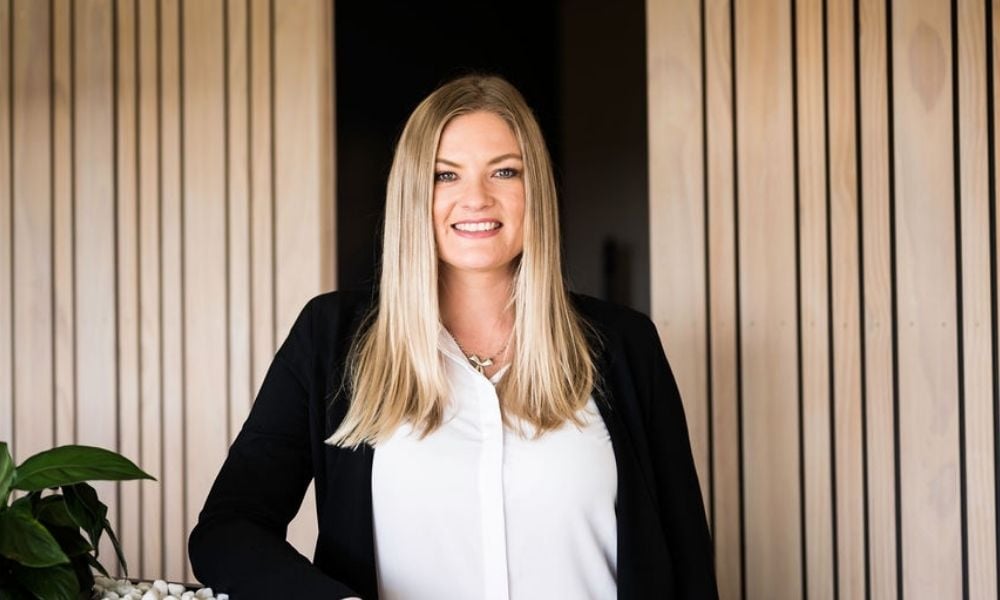
Jemani Sherman also believes that "we need modern laws for modern families"

Standing up for the right thing has always been a strength of Jemani Sherman’s. Her mother, Rose Alchin & Associates founder Rose Alchin, was in the legal profession, and Sherman grew up with an interest in politics and law.
Sherman would follow her mum into the industry, and join her at Rose Alchin & Associates. While Sherman describes the firm as being “a bit late to the party” in terms of adopting tech, COVID-19 restrictions drove the firm to upgrade the way it worked – something Sherman has embraced as being beneficial to health and well-being.
In this November 2021 interview, Sherman talks her passion for litigation, the new employment relations challenges birthed by the pandemic, and her excitement for strides bring made in surrogacy legislation.
As my mum (Rose Alchin) was a lawyer already, I had grown up around others in the profession. I had always known I was good at standing up for what is right, and had always been interested in how the world works from a political and legal viewpoint.
As I commenced practice, the favourite part of my job is the litigation aspect, being on my feet in court and employment hearings.
What is the most memorable case you've taken on/been involved in?
Whilst working at my previous employer, I got the opportunity to attend the Court of Appeal and the High Court for a tortious case involving trespass of chattels.
We have recently had a new associate join our team and are excitedly putting together content to host employment law seminars covering a range of employment-related issues commonly faced by small-medium businesses, to share with local accountants and their clients in the Waikato.
We might be a bit late to the party, but as Rose has practiced for so long in a paper-based manner, up until this year we had all practiced this way. We have recently moved our focus to merging all our work to a digital platform, and making as much of our work electronic and paperless as possible. This has been challenging but hugely rewarding, not to mention time saving.
We have adopted various new programmes that have assisted us, and with good IT tech support, we are running more efficiently than ever before.
With all the disruption caused by the pandemic and how the COVID-19 related restrictions impacted on how we practice, we – along with most of NZ, I suspect – were forced to adapt and embrace these new technologies and new ways of practicing. For example, in the Hamilton District Court, all participants in criminal proceedings have been required to attend their court appearances via VMR, which is an audio visual link to the court. Everyone involved in the court process, including the judge, the prosecutors, probation officers, lawyers and defendants, have been required to attend court hearings remotely.
This was at times, humorous, given the other social impacts of COVID-19 (mainly kids home from school and pets making the odd appearance) and the challenges of working from home with new technologies and poor connections. My biggest lesson I have learned during these times is that it is possible to have a far more fluid and flexible approach to the traditional methods of practice.
I think embracing the flexibility that has been proven to be efficient during this COVID-19 pandemic. Working from home is not without its challenges especially when it has been forced, and certainly not always going to be appropriate for all situations, but COVID-19 has shown us that working remotely at times is both possible and effective. Embracing a more flexible work life balance should be a main focus for the profession to encourage health and well-being.
The introduction of COVID-19 restrictions and everything that has come along with it – including wage subsidies, mandated vaccinations and employment restrictions, have given rise to many employment relations issues. This has been compounded at times by government advice being in direct conflict with established principles of employment law. Going forward, we are still navigating through this dynamic and rapidly developing environment, particularly in regard to employment law, which we specialise in.
While it has been very interesting from a legal perspective, we completely sympathise with the business owners and employees that continue to be affected by these ongoing changes.
On a completely different note and from a personal standpoint, I am very excited to see new legislation being considered around the Improving Arrangements to Surrogacy Bill. This bill was drawn from the ballot last month, and we are very eager to see positive changes being made to support families who require surrogacy to have a family. We need modern laws for modern families. Surrogacy is very close to my heart, and these changes are long overdue. We are very grateful to the Law Commission for proposing a new legal framework to make these changes possible.